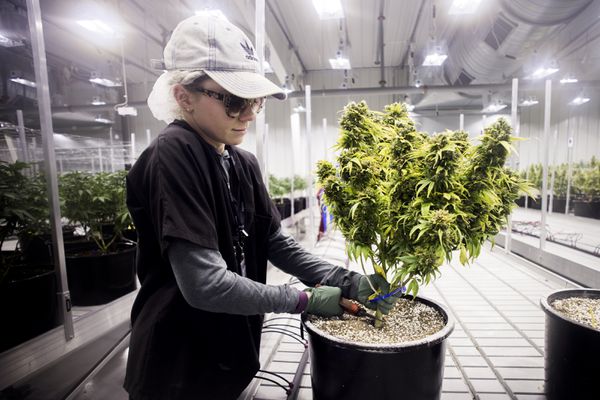
The legalization of recreational use of marijuana was a foregone conclusion in New Jersey earlier this year, it seemed. The state’s Democratic governor campaigned heavily on this issue, the public was also on board as shown by the polling figures, and measures were channeling through the chain of the Democratic lead state legislature, pushed by the lawmakers who were in favor of the effort.
However, in March, just hours prior to a scheduled vote on the same legalization bill, the measure was completely yanked from the agenda for an apparent lack of support in the Senate. Despite lukewarm promises from the top state lawmakers that they would continue to push for the bill to be passed, the state’s Democratic Senate president publicly declared that the legislation found its death last week.

Lawmakers on the other hand, will attempt to add the question of legalization of recreational marijuana on the ballot in 2020, where the voters and not the politicians will be able to make the call on whether they want it or not.
What New Jersey pledged to do – legalize recreational marijuana use and set up a regulated retail market through legislation – is unprecedented. Of the 10 states that have legalized cannabis, nine of them have done so at the ballot box. The other, Vermont, did so through legislation, but the measure did not outline a legal, regulated retail scheme.

Several other states with Democratic legislatures are attempting to pass recreational legalization measures and are running into roadblocks. In neighboring New York, a push for legalization has slowed, plagued by some of the politicking and in-fighting that surrounded the New Jersey bill.
Illinois, which preemptively factored revenue from future marijuana sales into its budget, is trying to pass a sweeping legalization measure before the legislative session ends in two weeks, despite cries from critics that lawmakers are moving too fast. Vermont still needs support from the state Senate and Republican governor, for a bill that would set up a retail market.

It remains to be seen if the collapse of the New Jersey bill foreshadows the failure of similar measures in other blue states, but the decision to move the effort from the statehouse to the ballot box, coupled with the fact that no state has yet legalized marijuana through legislation, begs the question: Is it possible in the current political climate to push legalization through a state legislature – or is the only viable path to recreational use and regulated sales through voters?
“This is still not an easy issue to get through a legislature,” says Roseanne Scotti, New Jersey state director for the Drug Policy Alliance, a pro-legalization group that has worked with states on drug reform. Among lawmakers who are generally supportive of marijuana legalization for adult recreational use, fierce debates continue over how exactly to do so, including disagreements over tax structure and provisions focused on social equality – debates informed by the issues faced by states that have already legalized through ballot referendums, like Colorado and California.

In New Jersey, lawmakers squabbled over how to tax marijuana sales, arguing about what rate would be high enough to generate revenue but low enough to ward off an illicit, underground market. Also at issue was a provision for the expunging aimed at rectifying the harm caused by marijuana prohibition on communities of color. The New Jersey measure would have expunged the criminal records of people caught with up to 5 pounds of marijuana – an amount that many conservative and moderate lawmakers felt was too much.
“We’re talking about replacing a decades-old, ingrained prohibition model with a complex regulatory system and tax structure,” says Mason Tvert, spokesperson for the Marijuana Policy Project, a pro-legalization organization that has played a role in key legalization efforts.

“I think most elected officials care most about what people in their districts think,” Scotti says. “You would well have a lot of elected officials, a lot of folks, who are hearing voices in opposition in their particular districts. It’s just more complicated because you have all those local pieces when you move something through the legislature.” Scotti says the number of states that allow for ballot measures on policies like cannabis legalization are dwindling.
Electoral politics contribute to that lag, Scotti says. Driven by political concerns, several communities in New Jersey and New York have said they would opt out of a marijuana retail program, as many districts in California have done.



